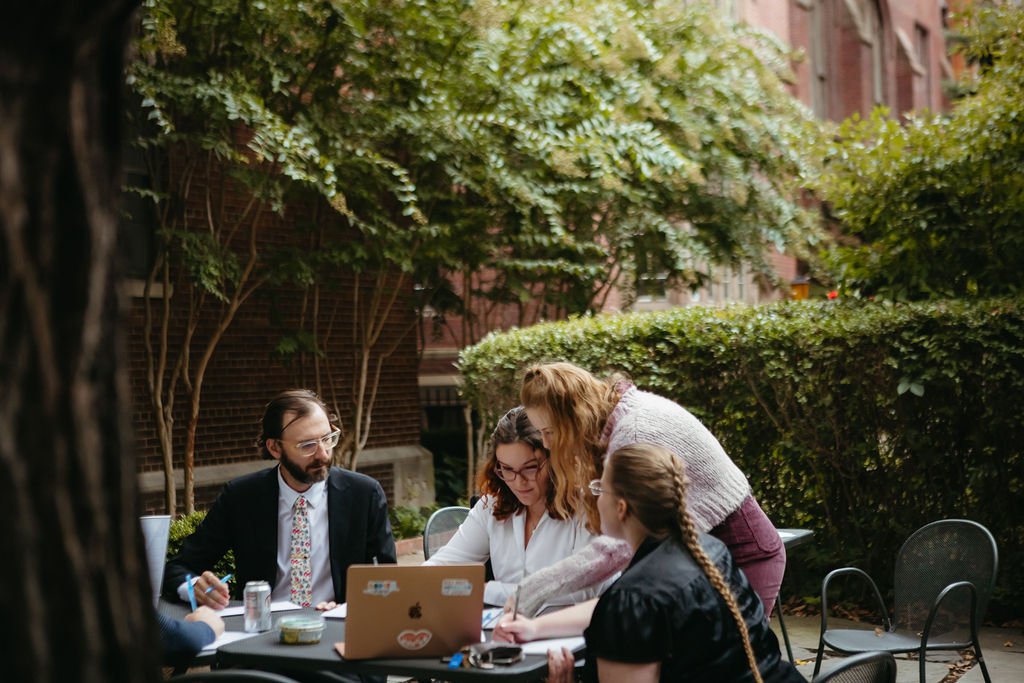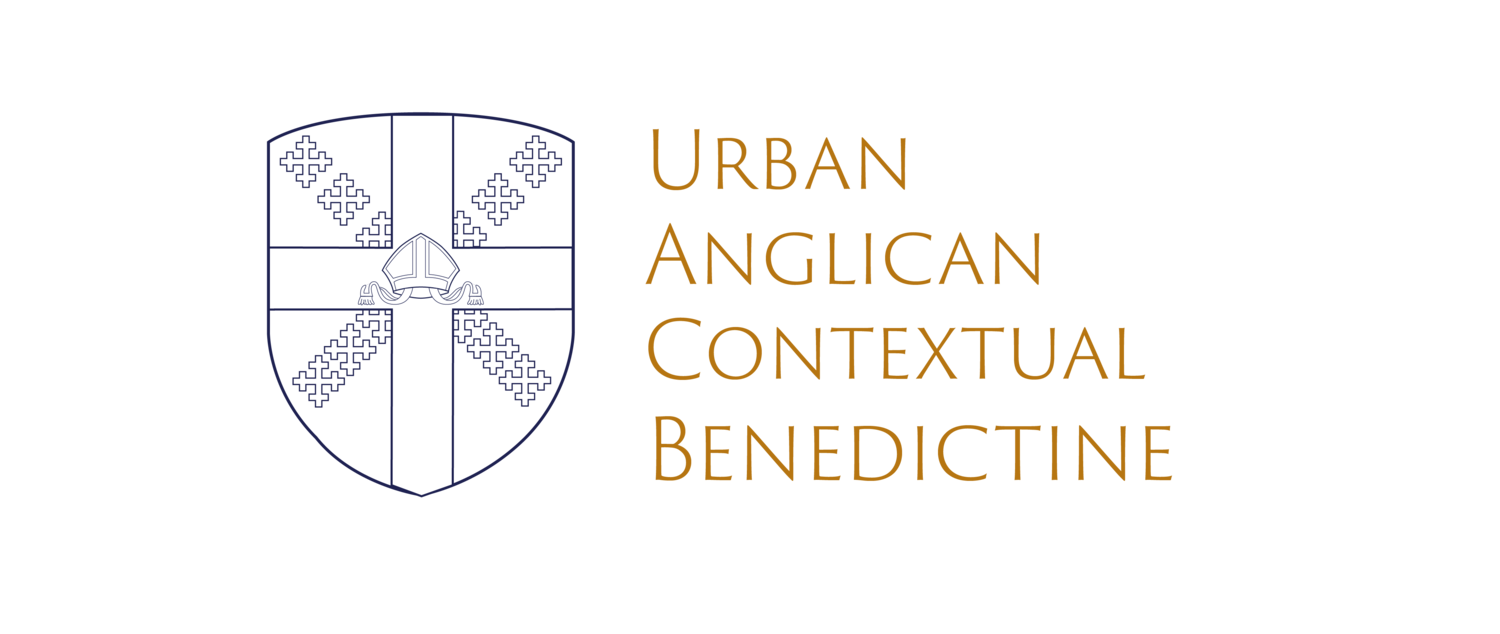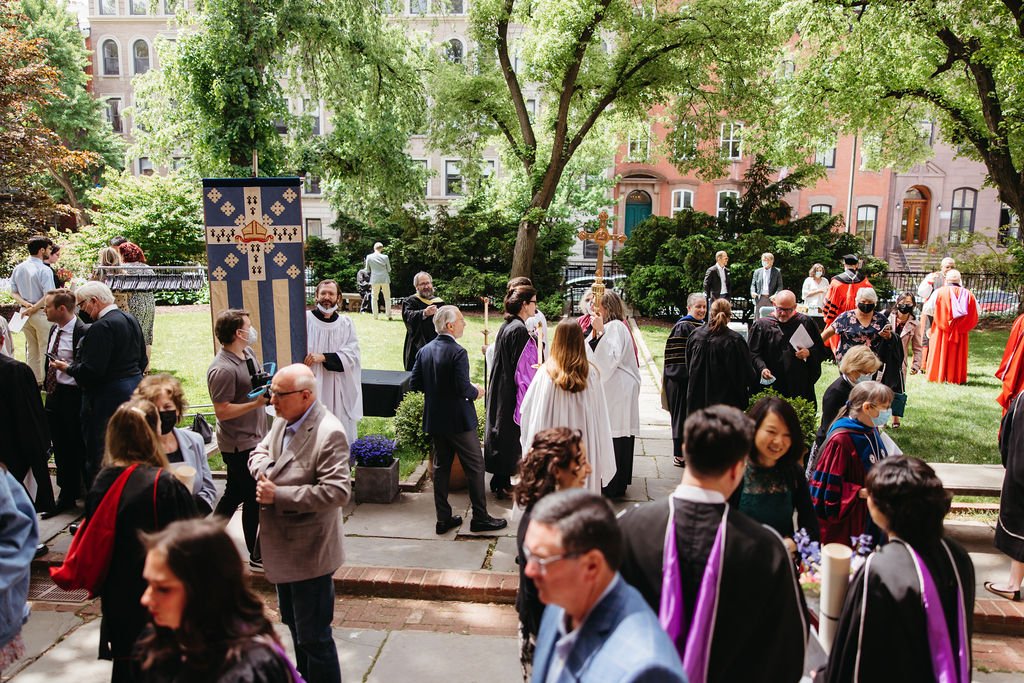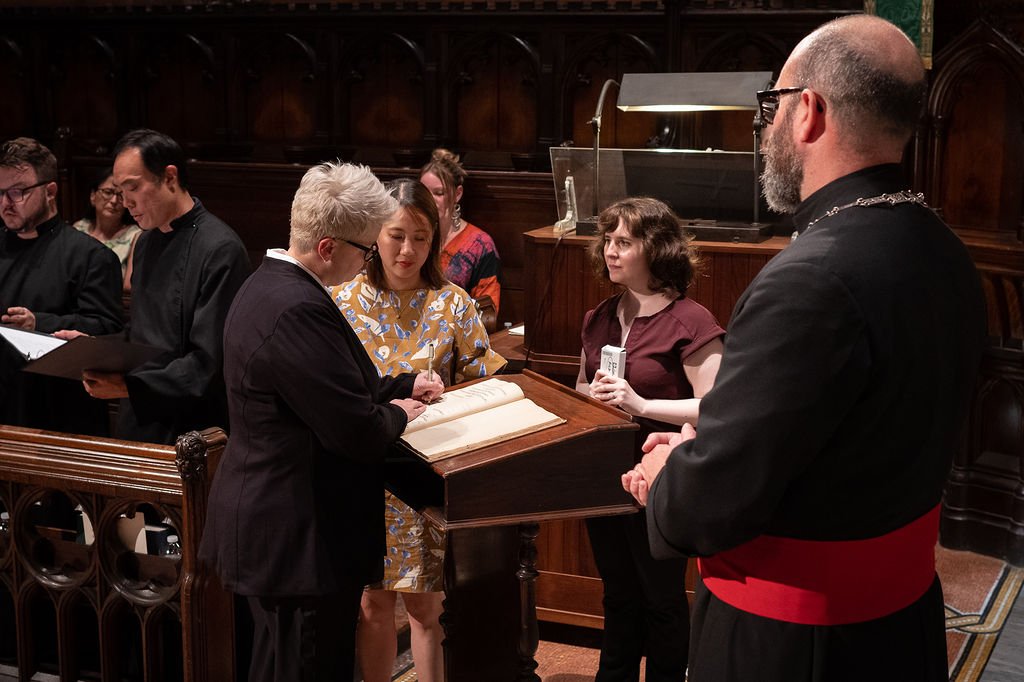
Hybrid Learning at General
Learn as you live. Grow with community. Serve where you are called.
Master of Divinity
The primary focus of the Master of Divinity curriculum at General Seminary is to educate and form students for the vocation of ordained ministry. General invites students preparing for ordination in the Episcopal Church or from a full communion partner to apply to the Master of Divinity program.
For more information, contact admissions@gts.edu or click here to apply now!
Join us at an Online Open House
-
When you think of graduate school, what images come to mind? For a lot of us, they are images of classrooms, long lectures, and readings that may or may not relate to the passion that brought you to school to begin with. At GTS, that passion — your vocation — is central to how we do “school.” Yes, there are classrooms, and yes, there are lectures, but this is only a part of the bigger program, which includes building community in a cohort that stays together for the length of your degree, HyFlex learning (if you can’t make it to class in person, you can attend remotely, using state-of-the-art, better-than-Zoom technology), all-remote classes, and a robust contextual program in a parish, diocese, non-profit organization, or other site as determined by your learning goals and sense of call. This are degree programs for people who want to be transformed by their learning, not simply check a box to meet a requirement. Through coursework, regular meetings with your cohort and supervisors, and attention to your own spiritual longings and questions, you will experience growth as a follower of Christ, an emerging leader, and as a person. Come grow with us.
-
Three times a year, students have the opportunity to come take a course in an intensive, week-long format on The Close in New York City. Our intensives are designed make use of the rich cultural resources of New York City — classes that can literally be taken nowhere else!
Maybe your choice will be a course on the Bible, Arts, and Justice, with regular outings to the Metropolitan Museum of Art. Or maybe you’d rather a course on the theology of urban nature, using Central Park as a locus for learning. Perhaps a course on the ethics and theology of immigration, visiting the tenement museum on the Lower East Side. These, and so many more, are planned for the coming years.
Students can choose from a variety of courses that connect theology and practice to the arts, architecture, museums, historical markers, and all of the wonderful New-York-ness that makes this place our home.
-
HyFlex programs provides numerous cost-saving advantages to a residential seminary. Grow your knowledge, deepen your commitment to Christ, and be better equipped to love your neighbors — for the right price. Generous financial aid is available to students. For more information, see our financial page.
-
Regular mentorship and support is available from an individualized team of professional coaches and spiritual directors, to support academic success, spiritual formation, and vocational discernment.
-
Degrees from GTS have full accreditation from the Commission on Accrediting of The Association of Theological Schools. Accreditation ensures the ongoing quality assurance and enhancement of our academic programs and enables GTS to participate in national and international conversations about the future of theological education.
For 200 years, The Episcopal Church has trusted General Seminary to educate and form leaders for ministry. Through you time at General, you will learn from world-class scholars and teachers and you will be joined in your cohort from students across the nation. Classmates often become peers who, after your time at GTS, will journey alongside you throughout your vocation.
About the Hybrid Program
Important Dates
We are receiving Applications for Academic Year 2026/7
For an early decision for the August 2026 term, please submit your application by February 1, 2026.
The final application deadline for the August 2026 term is March 31, 2026.
Term Dates
Cohort 5 of the Hybrid MDiv program meets for its first on-campus week-long course in August of 2026
FAQ
-
What is hybrid learning?
Hybrid learning (or blended learning) is learning that happens where you are, on your time, and in your context. Our program is designed to be taught through a combination of HyFlex (synchronously on-campus and online), asynchronous, and intensive courses, in order to make it so that how you learn, and where you learn, support what you learn. Learn more about our minimum technology requirements here.
Is this distance learning?
No. General’s programs are taught using blended- or hybrid-learning approaches. This combines rigorous competency-based approaches to field education, live in-person and in-classroom instruction, select asynchronous courses and on-campus intensive courses.
-
Why should I come to seminary?
Students come to seminary because they’re responding to a call from God, want to make a difference in God’s world, and want to deepen and grow their faith.
What about spiritual formation?
Studying in seminary isn’t like learning other disciplines — it’s an invitation to know, and be known by, the Triune God. At Seminary, we learn to love God with our minds, our hearts, and our actions. As we grow in our knowledge of Jesus Christ, the Holy Spirit draws us closer to each other and to God’s beloved world.
Formation occurs throughout your time at Seminary, at your home parish, in the classroom, through retreats, during regular chapel services (on campus and online) and during your residential intensives. During your time at General, students are encouraged to develop a Rule of Life, which states your commitment to fostering a sustainable life-long discipline of regular prayer and worship. For many students, the foundation of this will be practices like praying the Daily Office, engaging in spiritual direction, and finding ways to serve put your faith into action in your local community.
-
How can I form community remotely?
Programs are designed for cohort learning. Cohorts are small communities of learning which follow a similar degree pathway. You’ll get to know your cohort by learning together on campus and online. Part of the joy of hybrid learning is that your classmates will be with you through the ups and downs of real-life and real-world ministry, all the while walking alongside you through your program of study.
-
Does a hybrid program compromise future vocational opportunities?
Not at all. As much as parishes seek seminarians with a rich theological knowledge, they seek leaders with practical hands-on, community facing experience. A hybrid degree demonstrates your practical competency for ministry, along with your intellectual readiness for ministry.
-
How long does a hybrid program take to complete?
This depends upon the student and upon the degree program. The Hybrid Master of Divinity is designed to be completed in 4 years, but can be completed in as few as 3-years.
-
Does General offer scholarships or financial aid?
Yes! Scholarships cover the cost of tuition for the majority of students.



